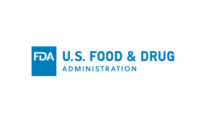Covid-19 and Food Safety: Walk the Talk on Protecting Global Public Health

In developing countries, large numbers of consumers purchase their food directly from informal (wet) markets for many reasons, including availability, freshness, and low prices. Also, informal food markets have a dual role of nourishing people and providing livable wages. However, informal markets are almost always associated with poor food safety regulation and a low standard of hygiene. The coronavirus disease (COVID-19) pandemic is believed to have begun at an informal food market, the Huanan Seafood Wholesale Market in Wuhan, China.
COVID-19 has dramatically impacted every component of daily life. As of July 1, 2020, there are 10,507,983 cases of COVID-19, and 512,071 people have died worldwide. Before COVID-19, there were more than 135 million people experiencing acute food insecurity. Millions more will slide into extreme poverty and hunger in 2020. Also, the pandemic has cost the world trillions of dollars. According to the United Nations Development Programme, more than 40 million people will be pushed into extreme poverty because of the economic shocks derived from the growth of COVID-19.
In the context of achieving quick and appropriate health and economic recovery from the COVID-19 crisis, governments, public health organizations, development organizations, academia, research institutions, civil society, and individual professionals have developed technical guidance, policies, regulations, standards, reports, and scientific articles. For example, it is estimated that more than 25,000 papers have been published on COVID-19 since January 2020. International organizations have also conducted virtual meetings, seminars, workshops, webinars, and conferences to educate the public.
In fact, the COVID-19 pandemic outbreak has brought the aspect of food safety, sanitation, and good hygiene practices to the forefront. The COVID-19 pandemic has made consumers more concerned about the safety of food in informal markets, which has produced an increase in the desire to willingly pay more for safer food in these markets. It has also been recorded that foodborne outbreaks have been recently decreasing in some countries because of COVID-19. For example, according to the Finnish Institute for Health and Welfare, between March and May, four suspected foodborne outbreaks were reported, compared with an average of 18 in previous years. The COVID-19 pandemic has also positively changed consumer behavior. In a survey, about 78 percent of respondents indicated that their attitude regarding food hygiene has changed. About 70 percent indicated that they are now more careful about washing their hands and cleaning surfaces after handling and unpacking food. About 40 percent of people are more careful about washing unpackaged fruits and vegetables than before, and 37 percent of those people also believe that everyone should use hand sanitizer when entering a shop where food is sold.
It is important to take advantage of the unprecedented behavior change resulting from the COVID-19 pandemic outbreak and speed up food safety initiatives across the globe. Fortunately, the theme of the United Nations’ second World Food Safety Day, which was celebrated on June 7, was the same as last year’s theme: “Food Safety Is Everyone’s Business.” Therefore, governments must ensure safe and nutritious food for all. The food industry must adopt good practices and make sure food is safe; the global population should not settle for access to food being a human right, but access to safe food being a human right. Consumers must be more conscious of their food choices, and they should demand safe, healthy, and nutritious food.
We must all learn from the COVID-19 pandemic outbreak. Developing countries must invest more into establishing/enhancing their national food safety systems. National food safety systems must have the ability to produce and market food safely. Developing countries should focus their limited resources and efforts on improving and modernizing the informal markets. A risk-based approach and a root cause analysis should both be used by developing countries to identify the most significant hazards in food. Policymakers and regulatory authorities must build the capacity to prevent, reduce, and control these hazards to improve food safety in informal markets. Developed countries should assist developing countries in strengthening their national food safety systems, especially those related to informal food markets.
Barakat Mahmoud, Ph.D., is an international food safety expert with 30 years of experience in food safety. He has provided technical assistance in food safety in several developing countries in Africa, Asia, Central America, the Middle East, and the Caribbean.
Resources
www.who.int/publications/m/item/a-guide-to-world-food-safety-day-2020
www.wfp.org/news/covid-19-will-double-number-people-facing-food-crises-unless-swift-action-taken.
www.fda.gov/food/food-safety-during-emergencies/best-practices-re-opening-retail-food-establishments-during-covid-19-pandemic.
www.who.int/news-room/events/detail/2020/05/16/default-calendar/walk-the-talk-the-health-for-all-challenge.
www.newfoodmagazine.com/news/111700/no-quick-return-to-normal-food-habits-after-covid-19-survey-suggests/.
www.food-safety.com/enewsletter/modernized-wet-markets-an-approach-to-prevent-future-global-public-health-crises/.
www.food-safety.com/enewsletter/the-covid-19-pandemic-food-safety-an-eyewitness-to-the-global-war-against-the-invisible-enemy/.
Looking for a reprint of this article?
From high-res PDFs to custom plaques, order your copy today!






